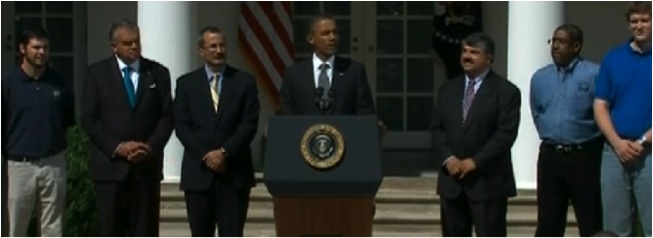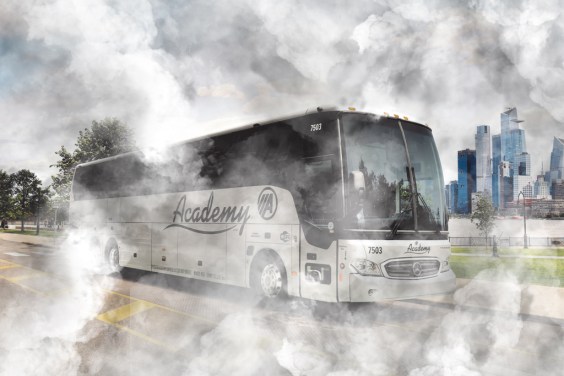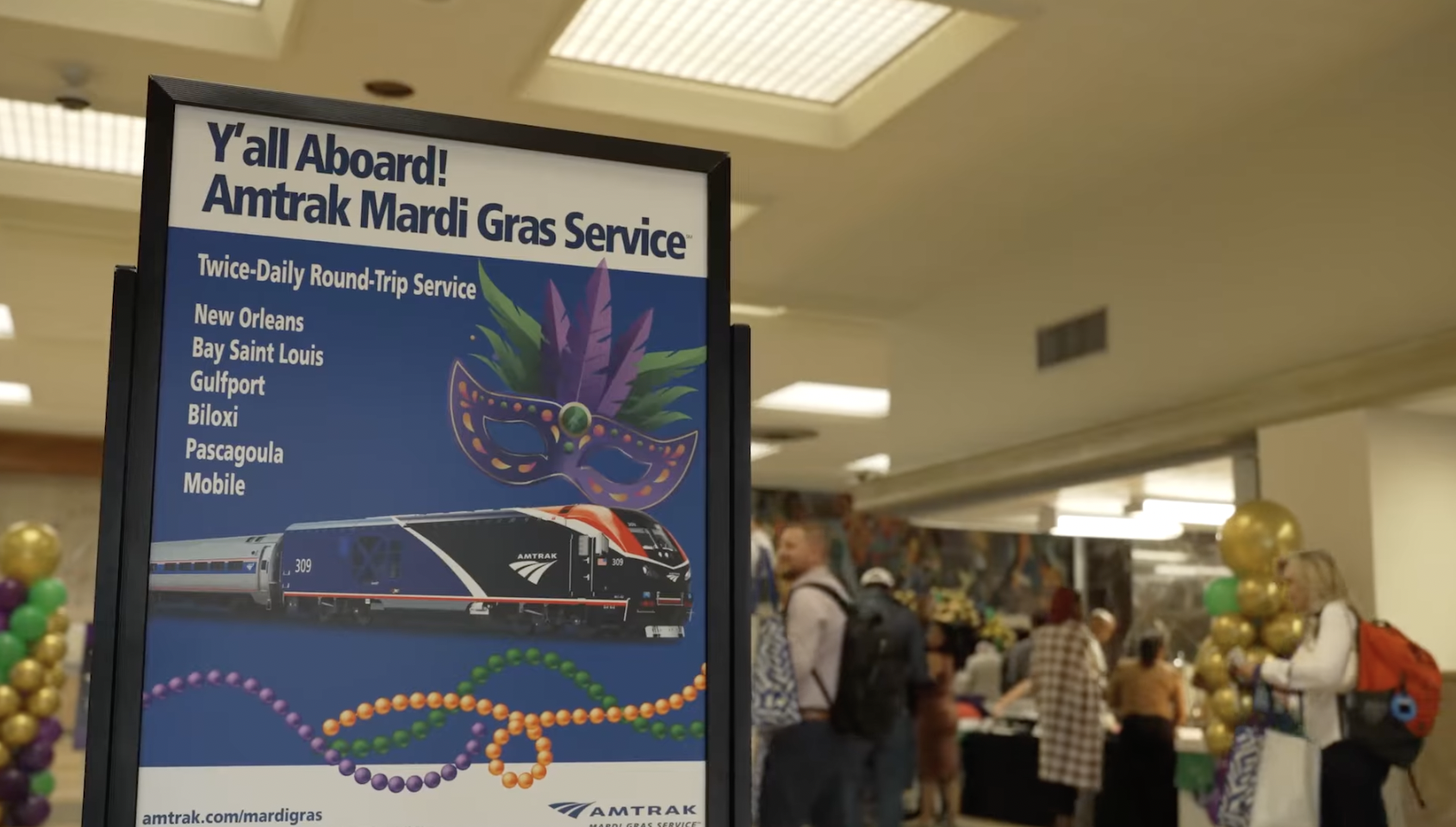
"I'm calling on Congress, as soon as they come back, to pass a clean extension of the surface transportation bill," President Barack Obama said from the Rose Garden this morning. "This bill provides funding for highway construction, bridge repair, mass transit systems, and other essential projects that keep our people and our commerce moving quickly and safely. And for construction workers and their families across the country, it represents the difference between making ends meet and not making ends meet."
While his calls for an extension of the current bill are increasingly in line with the growing realization that there is no possible way of passing a new bill before the September 30 extension, Obama did look beyond the immediate fix. "When Congress is back next week, in addition to passing these clean extensions to prevent any halt on existing work, we're going to have to have a serious conversation in this country about making real, lasting investments in our infrastructure -- from better ports to a smarter electric grid, from high-speed internet to high-speed rail."
Obama didn't specify how long of an extension he was seeking.
The president's speech, first announced yesterday, made a push not only to put people back to work, but to "reform the way transportation money is invested, to eliminate waste, to give states more control over the projects that are right for them, and to make sure that we're getting better results for the money that we spend."
We need to stop funding projects based on whose districts they're in and start funding them based on how much good they're going to be doing for the American people. No more bridges to nowhere, no more projects that are simply funded because of somebody pulling strings. We need to do this all in a way that gets the private sector more involved. That's how we're going to put construction workers back to work right now, doing the work that America needs done, not just to boost our economy this year but for the next 20 years.
That focus on performance is good news for transportation reformers who have been demanding that the next reauthorization spend limited transportation dollars more wisely, using a cost-benefit analysis and other evaluative tools to determine whether a given project meets national and regional transportation goals. Obama's mention of long-term economic growth, in addition to short-term job creation, is also a welcome change to those who have pushed politicians, including the president, to take the long view.
“The Interstate system created a lot of jobs, but no one talks now about how many jobs it created from constructing it,” Joshua Schank, CEO of the Eno Transportation Foundation, told Streetsblog last month. “People talk about the impact it had on the economy.
President Obama also said that he had directed some federal agencies to identify high-priority construction projects that are already funded but could use a jump-start with expedited permitting decisions and reviews "while still protecting safety, public health, and the environment."
During his remarks, the president was flanked by Transportation Secretary Ray LaHood, AFL-CIO President Richard Trumka and Chamber of Commerce Chief Operating Officer David Chavern.
His mention of Congress' inability to pass a new FAA bill highlighted another reason why significant action on a new bill will be impossible before the end of this month: Congress' most recent extension of the aviation reauthorization expires first, and the chambers will busy themselves fighting over a few million aviation dollars before the September 16 deadline for that bill, before they can get around to arguing about surface transportation.
If the bill is delayed just 10 days, the country would lose over $1 billion in transportation funding -- "That's money we can never get back," Obama said.





